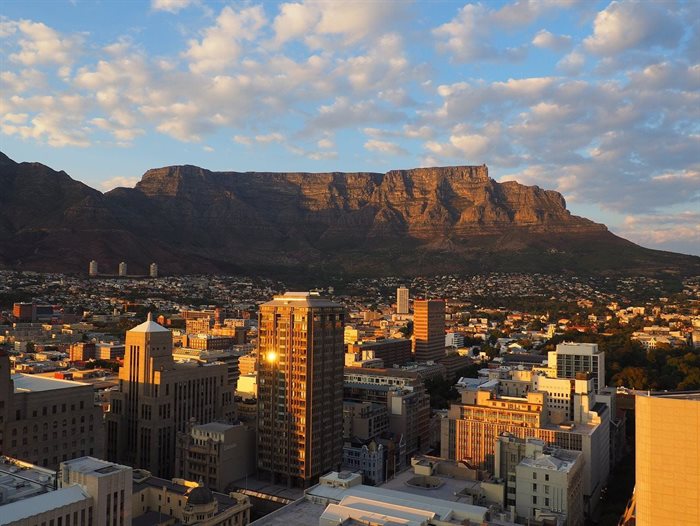
Related
Top stories





Marketing & MediaWarner Bros. was “nice to have” but not at any price, says Netflix
Karabo Ledwaba 2 days

More news

Logistics & Transport
Maersk reroutes sailings around Africa amid Red Sea constraints


















Data in the ninth edition of the annual report, published recently by the Cape Town Central City Improvement District (CCID) and which reflects on the economic climate in the Cape Town Central City across the previous year, shows steady confidence in the development potential of the CBD, says CCID board chairperson Rob Kane.
“The Cape Town CBD once again proved its resilience in a very tough year. While some businesses have closed, many others have survived the first Covid year and it is very encouraging to note that investor and property development interest in the city centre remains steady,” says Kane.
Of the 31 new developments (recently completed, currently underway, planned or proposed in the CBD), five were completed in 2020 (conservatively estimated value R972m), 15 were under construction in 2020 (conservatively estimated value R2.9bn), nine were in the planning phase (conservatively estimated value R2bn) and two were proposed (conservatively estimated value R860m).
Key developments include Abland’s P-grade skyscraper 35 Lower Long (valued at R500m), Ryan Joffe Properties’s The Rockefeller at Harbour Place (valued at R500m), and WBHO’s Hotel Sky (valued at R400m).
Since the report was published, the conversion of commercial building One Thibault into a mixed-use office and residential development (valued at R500m) has confirmed the trend of repurposing commercial buildings.
Other findings of the report are that:
The most significant indicator of investor confidence in the Cape Town Central City was the growth in property value from R30.6bn in 2016/2017 to R43.8bn in 2019/2020.
Kane notes that the increase in gross valuation for the Cape Town CBD remains heartening and speaks to continued investor confidence and development potential.
The commercial property market remains resilient in 2021, with the continued conversion of office buildings into mixed-use developments or residential developments. “This indicates a flexibility in the sector,” says Kane.
Data on the residential property sector shows innovative offerings, coupled with low interest rates, continued to attract investor interest in the prospect of living in a successful downtown regardless of the effects of Covid-19 on the economy.
Says Kane: “Developers have responded with accommodation offering flexibility, ease of use and affordability.”
The key trend to emerge was the focus on community, with property buyers becoming members of the development’s “club”, rather than simply owners or tenants, and co-living and co-working spaces being the order of the day.
Of the 15 developments under construction in the CBD in 2020, at least nine were residential developments valued at R2.07bn.
The median price of apartments sold in the Central City in 2020 was R1.65m, which is less than the R1.8m median price reached in 2019. The most sales were recorded in the R20,000-R29,999/m² price band.
Says Kane: “The distribution of sales across the various price bands shifted from the most being recorded in the R30,000-R39,999/m² category in both 2018 and 2019 to the lower band in 2020. This can be attributed to the price correction in the national residential housing market in recent years which has brought house prices in line with prevailing economic realities.”
In 2020, the median price of R1.65m for sectional title units represents an 8.3% decline relative to the median price achieved in 2019, which was R1.8m. In 2020, 130 units were sold compared with 174 the previous year.
In terms of rentals, at the end of 2020 (end-January 2021), a total of 475 units were listed on Property24.com as available for rent in the Cape Town Central City. This compares to 180 units listed end-2019.
Says Kane: “There was a significant increase in available rental stock in 2020 as repeated lockdowns and subsequent travel restrictions impacted the tourism and eventing industry. This prompted numerous units, which were previously available as short-term lets such as AirBnB, being added to the long-term rental pool.”
A key theme of the 2020 report is the fledgling cannabis industry which holds huge economic potential for the Western Cape, Cape Town and the CBD.
The province is attracting significant investor interest in medicinal cannabis based on its strength in agriculture. The value of Western Cape agriculture and agri-processing exports in 2020 was R77.2bn.
While medicinal cannabis is still an emerging sector, projections from a Wesgro report suggest that the global legal cannabis market is set to grow by 20% per annum in 10 years. By 2023, South Africa’s legal cannabis market could be worth R106bn per annum.
Business owners and retailers are keen to capitalise on this trend, with Southern Sky Group setting up Africa’s first CBD (a cannabinoid found in the cannabis plant and used in products) store, Goodleaf, in the Cape Town CBD in 2019. Business showed positive growth in 2020 despite the pandemic.
Another key economy to flourish in the Cape Town CBD in 2020 was the business process outsourcing (BPO) sector, the report notes. The BPO call centre sector employs more than 60,000 people in Cape Town with over 17,037 of them being employed in the last three years. A total of 23 call centres are based in the Cape Town CBD, comprising 11 international and 12 local centres employing over 16,000 people.
Other features of the report include:
View or download the full report here.